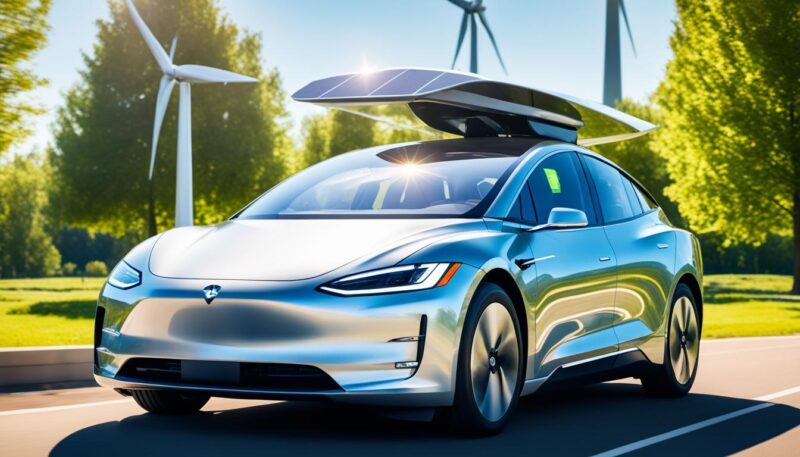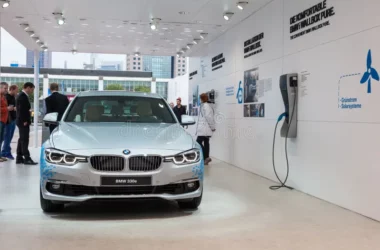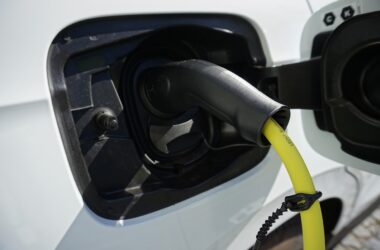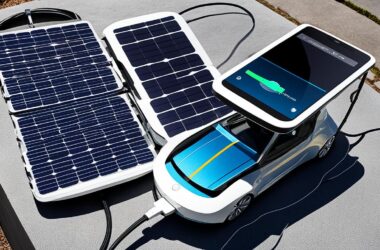Hello, I’m excited to share with you the benefits and considerations of solar charging for electric vehicles (EVs) in the UK. As the world evolves towards sustainable transportation, harnessing the power of the sun to charge our EVs is a game-changer. Not only does it reduce our carbon footprint, but it also provides long-term cost savings. Let’s dive into the details!
Key Takeaways:
- Solar charging EVs significantly reduces greenhouse gas emissions and helps combat climate change.
- By using solar panels for EV charging, you can enjoy long-term cost savings by eliminating or reducing electricity bills.
- Evaluating your energy needs, roof suitability, and complying with local regulations are crucial considerations before installing solar panels.
- Integrating a battery storage system enhances your EV charging capabilities by storing excess solar energy.
- The solar charging process involves converting sunlight into electricity, which can be used to charge your EV through a home charging station.
Benefits of Solar-Powered EV Charging
Combining solar panels with electric vehicle charging offers a range of benefits that contribute to a sustainable and efficient transportation system.
“Solar-powered EV charging has the potential to transform the way we power our vehicles, reducing our carbon footprint and promoting a greener future.”
Environmental Benefits
By using solar panels to charge your EV, you can significantly reduce greenhouse gas emissions and air pollution. Solar energy is a renewable and clean source of power, making it an eco-friendly choice for charging electric vehicles.
Financial Savings
Solar-powered EV charging can bring significant financial savings by eliminating or reducing electricity bills. By harnessing the power of the sun, you can tap into a free and abundant energy source to charge your vehicle.
Energy Independence
Utilizing solar panels for EV charging provides energy independence, reducing dependence on external energy providers. By generating your own electricity, you can become less vulnerable to energy price fluctuations and have greater control over your energy consumption.
Reduced Strain on the Grid
Solar-powered charging helps alleviate strain on the electric grid by utilizing decentralised energy sources. When you charge your EV with solar energy, you reduce the demand on the grid, contributing to a more resilient and stable energy system.
By harnessing the power of solar panels for electric vehicle charging, you can enjoy environmental benefits, financial savings, energy independence, and reduced strain on the grid.
Considerations Before Installation
Before transitioning to solar-powered EV charging, several key considerations need to be addressed to ensure a seamless and efficient installation.
Assessing Energy Needs
One of the first steps in the process is to assess your energy needs. This assessment helps determine the appropriate size and configuration of your solar array, ensuring it meets the demands of both your household energy usage and your EV charging requirements.
Evaluating Roof Suitability
Roof suitability is another essential factor to consider. It’s important to evaluate your roof’s orientation, tilt, and shading to determine its viability for maximizing energy generation from solar panels. Ensuring optimal conditions will help maximize the amount of clean energy produced and enhance the efficiency of your EV charging.
Local Regulations and Permits
Before installing solar panels and setting up an EV charging system, it’s crucial to research and comply with local regulations and obtain the necessary permits. Adhering to these requirements ensures a legal and hassle-free installation process, giving you peace of mind as you transition to solar-powered EV charging.
Battery Storage Integration
Integrating a battery storage system into your solar-powered EV charging setup can significantly enhance its capabilities. Battery storage allows you to store excess energy generated by solar panels during periods of high sunlight and use it later during periods of low sunlight or high energy demand. This integration ensures a more reliable and uninterrupted supply of power for your EV charging needs.
Inverter Compatibility
Finally, it’s crucial to ensure that the inverter used in your solar panel system is compatible with your EV charging requirements. The inverter is responsible for converting the DC power generated by the solar panels into AC power usable by your EV. Compatibility between the inverter and your EV’s charging requirements is vital to ensure efficient charging and optimal power utilization.
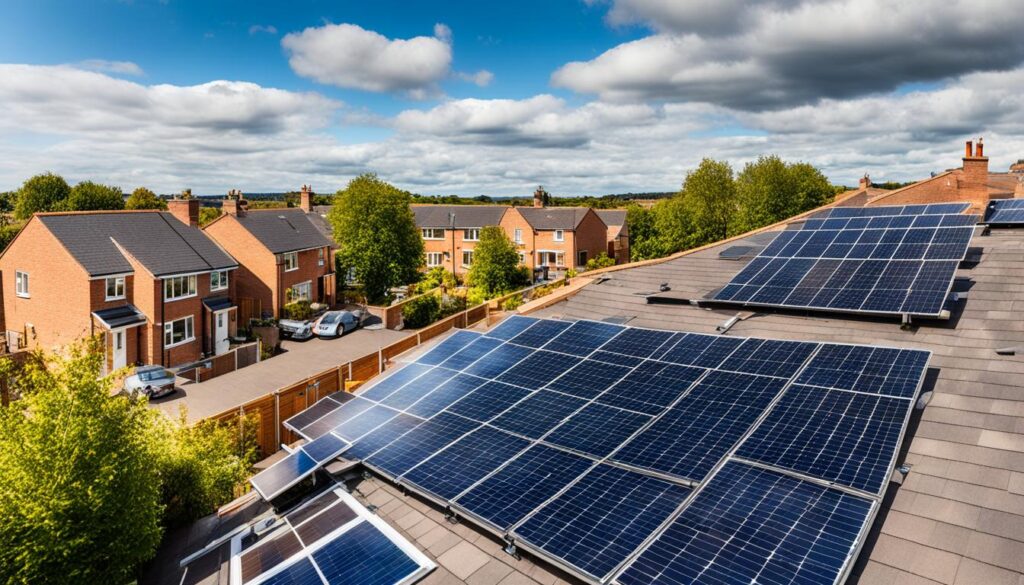
Summary: Considerations Before Installation
In summary, before installing solar panels for EV charging, it’s essential to assess your energy needs, evaluate roof suitability, familiarize yourself with local regulations and obtain necessary permits, integrate a battery storage system, and ensure inverter compatibility. Taking these considerations into account will help streamline the installation process and ensure efficient and reliable solar-powered EV charging.
| Consideration | Description |
|---|---|
| Assessing Energy Needs | Determine the size and configuration of your solar array based on your energy requirements. |
| Evaluating Roof Suitability | Evaluate your roof’s orientation, tilt, and shading to maximize solar energy generation. |
| Local Regulations and Permits | Research and comply with local regulations and obtain necessary permits for legal installation. |
| Battery Storage Integration | Integrate a battery storage system to store excess energy for use during low sunlight or high energy demand. |
| Inverter Compatibility | Ensure compatibility between the inverter and your EV’s charging requirements for efficient power conversion. |
The Solar Charging Process
When it comes to solar-powered electric vehicle charging, understanding the charging process is essential. Let’s take a closer look at how solar panels, energy generation, and power distribution work together in this innovative charging solution.
Energy Generation with Solar Panels
Solar panels play a crucial role in the solar charging process. They harness the power of sunlight and convert it into usable electricity through photovoltaic cells. These cells generate DC (direct current) electricity, which is the initial form of power produced by solar panels.
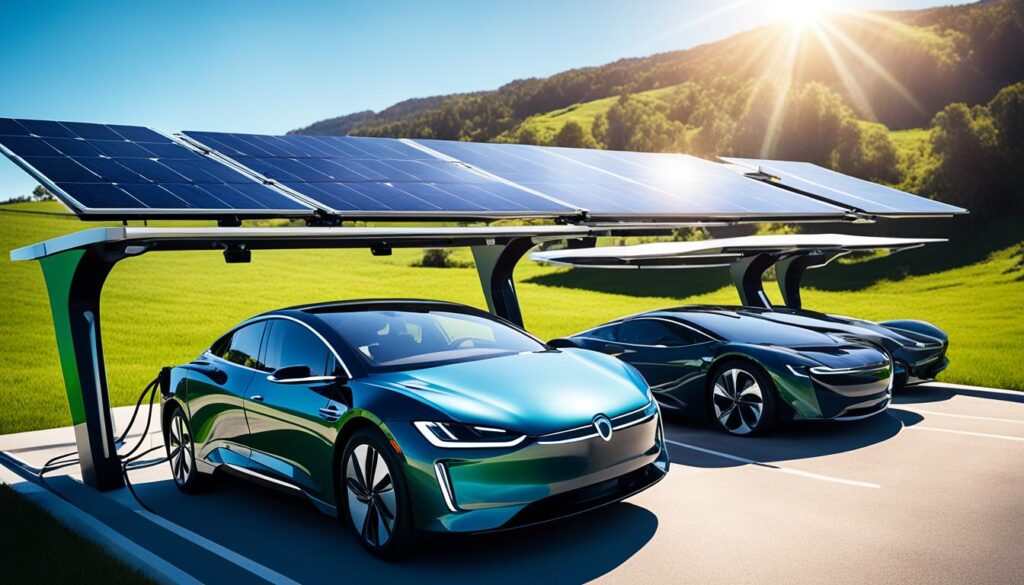
Distribution and Conversion of Power
To make the solar-generated electricity usable for household purposes and EV charging, it needs to be converted into AC (alternating current) power. An inverter is responsible for this conversion, ensuring that the electricity matches the AC power used by homes and electric vehicles.
The Charging Process
Once the solar panels have generated electricity and the inverter has converted it to AC power, the energy can be utilized for various purposes. A portion can be directed towards meeting household electricity needs, such as powering appliances and lighting.
To charge your electric vehicle, plug it into a home charging station that draws electricity from the solar-generated power. This way, your vehicle charges with clean, renewable energy, reducing carbon emissions and contributing to a more sustainable future.
If there’s excess solar power not immediately consumed or stored in a battery, it can be fed back into the grid, making your home a power contributor. This helps in offsetting energy costs and creating a more balanced and distributed energy system.
Monitoring and Maintenance
Regular monitoring of solar panels ensures optimal performance. Cleaning panels regularly removes any dirt or debris that may hinder their efficiency. Additionally, checking for technical issues or damage helps identify and address any maintenance requirements promptly.
“Solar-powered EV charging not only provides renewable energy for transportation but also offers significant environmental benefits and energy cost savings.”
In conclusion, the solar charging process involves the conversion of sunlight into electricity through solar panels, the distribution and conversion of power by an inverter, and the utilization of that power for both household electricity needs and electric vehicle charging. Regular monitoring and maintenance help maximize the efficiency and performance of solar panels, ensuring the sustainability and longevity of this eco-friendly charging solution.
Conclusion
The integration of solar panels and electric vehicle charging is a significant step towards achieving a more sustainable and eco-friendly future. By utilizing solar panels to charge your EV, you actively contribute to reducing carbon emissions and supporting renewable energy sources. This not only helps combat climate change but also paves the way for a greener future for all.
In addition to its positive impact on the environment, solar-powered EV charging also offers long-term cost savings. By relying on clean and renewable energy from solar panels, you can reduce your reliance on traditional energy sources and lower your carbon footprint. This transition to clean energy not only benefits your wallet but also supports the wider goal of building a sustainable and greener society.
As awareness and demand for sustainable transportation and energy solutions continue to grow, exploring the options available to integrate solar panels with EV charging is crucial. By making the switch, you contribute to the global effort to combat climate change and create a sustainable future that prioritizes the well-being of our planet and future generations. Embrace the power of solar panels and electric vehicle charging to make a difference in building a greener tomorrow.





